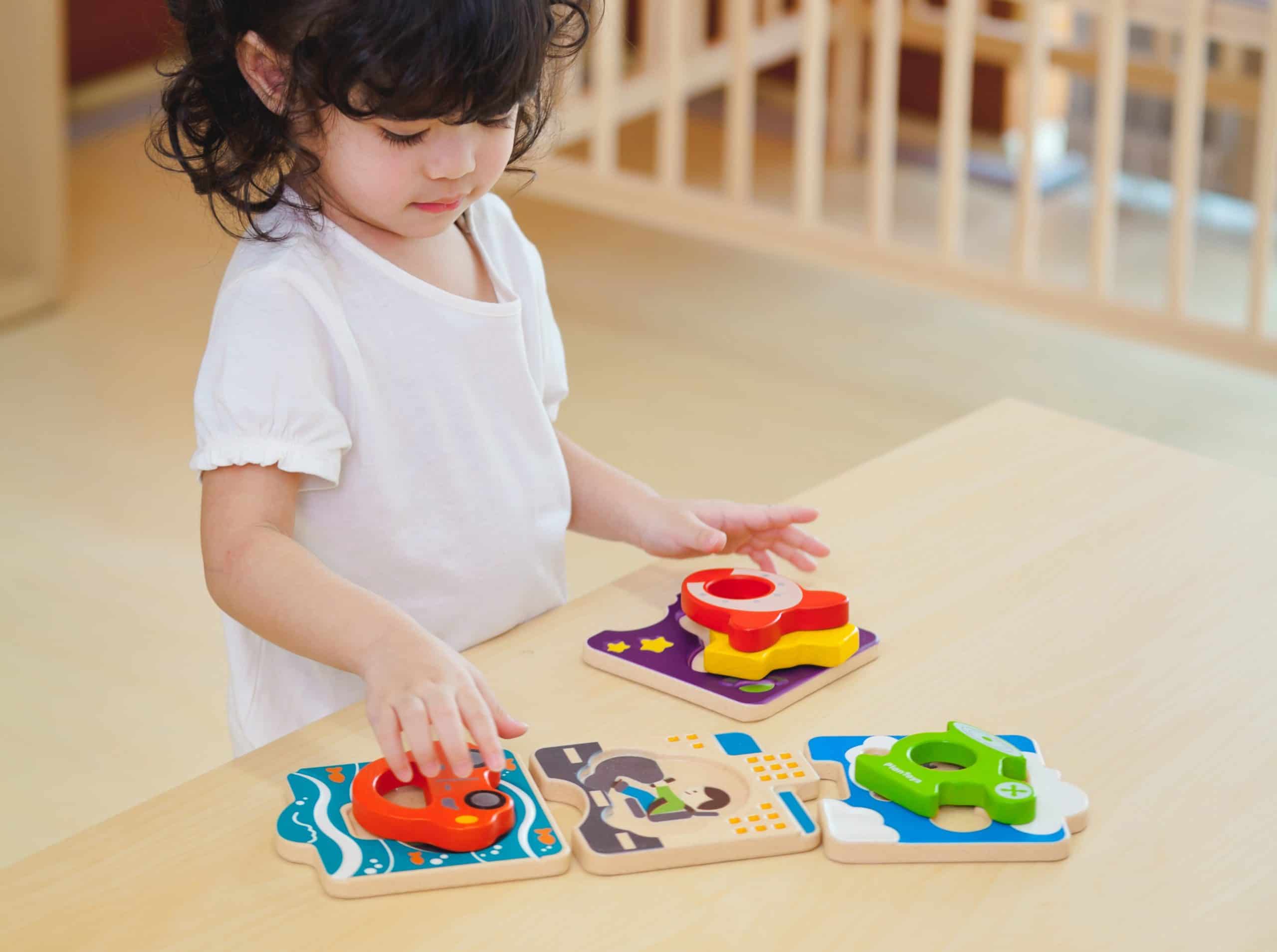
Puzzles are an important educational learning tool for toddlers and young children as they provide many skills and cognitive learning benefits and opportunities.
Puzzles are a standard in helping a child develop basic skills such as shape recognition, concentration, goal setting, patience and a sense of achievement, which will stand them ready in good stead for school. A puzzle also teaches a basic concept that even adults tend to overlook: the concept of a 'whole' and that each piece is a fraction of the bigger picture.
Manipulating puzzles require movements like flipping and turning which are actions that help connect their hands with their eyes. Similar to the way hand-eye coordination is achieved, puzzles provide the opportunity for children to develop fine motor skills which require small, specialized movements that puzzles are able to provide. Fine motor skills are necessary for handwriting and other important achievements.
As they fit the pieces of a puzzle together, children learn to work through a problem and reach a solution they themselves have come up with. In that process, they get to experience little challenges like setting aside a piece they hope to put in the puzzle while searching for one that fits in the spot they need. They also may learn that there are multiple paths to the puzzle’s completion--a realization they can carry on later in life; that a problem at hand has many solutions.
It's only natural for children to encounter frustration when they cannot easily solve a puzzle, and when they work through these emotions, they enjoy the success of task completion. Persisting until the last piece of the puzzle is set in place teaches them to become responsible and pull through a task they have at hand. Until they see a complete picture of the puzzle, they will be reminded that there are still some pieces yet to be placed.
Puzzles are an activity better done with a friend. When your child takes on a puzzle challenge with someone else, they can practice communication and working things out together.
Allow your child to practice important skills with puzzles! As a member of the KIDDOS Toys Club, your child can receive fun and educational toys like puzzles--from none other than quality, award-winning brands!